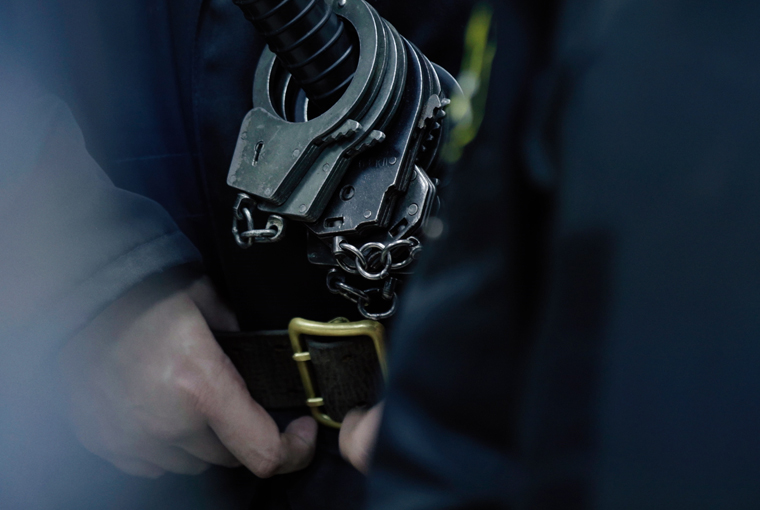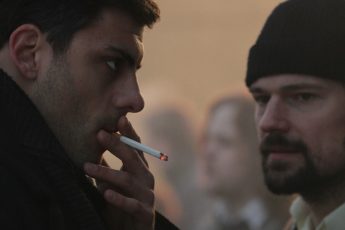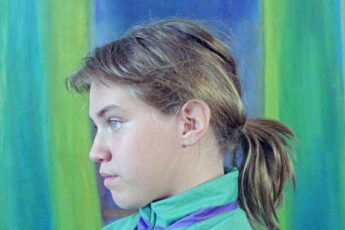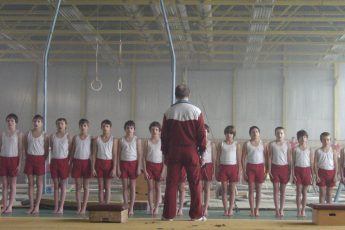Apology Not Accepted
Anna Shishova’s The New Greatness Case (Ansa Moskovassa, 2022)
Vol. 131 (January 2023) by Colette de Castro
Until recently Roskino.org, a website set up to promote Russian audiovisual content in international markets, advertised screenings of Russian films in festivals like Cannes or Venice. Nowadays, its news items run titles such as “The Bolshoi, A Russian Drama About a Young Ballet Dancer, Received Praise in Bangkok.” Festivals like the Berlinale, whose upcoming competition includes no Russian productions, observe an unspoken rule about showing films that have any ties to the state. At this point, that rules out nearly any filmmaker currently living in a country with a population of 143 million people. At Cannes last year, Kirill Serebrennikov told one journalist in a biting interview for the New York Times, “if you want to cancel Russian culture, I guess then you should just kill all of us.”1
Even Russian-language films are a stretch for festival programmers, as they know that they can potentially cause havoc. At the Cottbus Film Festival in Germany at the end of last year, one attendee told me that hearing an actor speak Belarusian with a Russian accent was physically painful for him.
Some films however, do slip through the cracks. If a film has been produced by another country, and the film’s director has fled Russia, it might just be included in a festival program. This was the case for the only Russian-language film featured at the Trieste Film Festival this year: The New Greatness Case, a documentary by Anna Shishova. It’s a co-production between Finland, Norway, and Croatia.
The main subject of The New Greatness Case, Anya Pavlikova, was only 17 when she was arrested along with nine other young people on charges of extremism. Any of these young people would have made good documentary subjects, but from the first, very intense scene we are seized by the fragility of the young and rather beautiful Anya, who sits trembling in the glass-plated dock awaiting her sentence, looking like a young woman caught up in a terrible crime scene on the way to a debutante ball: she is terrified out of her wits.
Anya had joined a group of young people who called themselves “The New Greatness”. Dissatisfied with Putin’s government, they had started meeting and “going for walks around Moscow” to discuss what they didn’t like about the current system. The enthusiastic group of youngsters was soon joined by an older man who introduced himself to them on the internet using a pseudonym. He was the one to find a place for them to rent and meet regularly. This man was later revealed to be a secret agent working for the Russian government. The meeting space had been rigged with cameras before the group arrived. In one creepy bit of footage which Shishova replays several times, the infiltrator stands in the doorway staring straight at the camera with a snide gaze. The very surveillance footage that was used to entrap the group’s members thus comes full circle, highlighting the guile of those who sought to entrap them. The worst they did was to get together and prepare home-made Molotov cocktails, throwing them against a wall in an abandoned building. Once again, the secret service agent is there too, egging them on and filming the whole thing with a camera hidden in his jacket.
But although there is a lot of harsh judgment by the general public and people come out to shout at Anya’s mother at the rallies she organizes, it’s clear that the real orders are coming from much higher up. In one scene, the female judge reads out the sentence of one of the boys, but she refuses to use the microphone. She reads his sentence from the paper in a soft voice, her whole body tense and her attitude downcast. As the audience asks her to speak loudly, she just droops her head even lower. The people in the court exchange glances of bewildered confusion. She is letting them know she is with them, her behavior a protest in itself.
Seeing the way that Anya gradually starts to lose her sanity throughout the film is heartbreaking – the way her eyes dart around the room, the glances behind her wherever she goes, the fidgeting of her hands. The filming is always respectful, always kind, but also shrewd and incisive. The dark circles under Anya’s eyes increase by the day, and the pile of medication, which her mother lovingly lays out for her, grows higher too. Filming her is illegal as she is on house arrest awaiting trial, and the filmmaker herself is taking a risk by coming to her house. At some point she becomes afraid to keep going there, and leaves the camera to Anya’s sister. This interlude of a sister’s gaze lets us see a more vulnerable Anya, who walks hunched over on the treadmill placed awkwardly in the small hallway of her home. As we follow Anya, we also follow her mother, Julia, who rallies for the cause of her daughter against extraordinary odds: joining movements of mothers of political prisoners, protesting alone outside parliament buildings, being arrested herself, speaking at rallies, and even creating her own sort of movement.
New Greatness reminded me of the 2013 documentary Pussy Riot: A Punk Prayer. It followed the aftermath of the feminist group’s electric performance at Moscow’s Cathedral of Christ the Savior in protest at the Orthodox Church’s support of Putin’s electoral campaign. Except that in the case of New Greatness, the actions were considerably milder and yet the punishments were even more severe. Not that we need it, but as a follow-up to Pussy Riot, this film is homespun proof that when it comes to justice in Russia, the situation has only been worsening.
Shishova’s film was mostly made in 2018 and 2019, but she finished it sometime after Russia’s war on Ukraine began. A voice-over has been added by the director after the film was clearly already finished. In it, she elucidates the ways in which the systematic rooting out of anyone who questions the Russian government was a harbinger to the invasion of Ukraine. It is exceptionally well-written, and accompanied by stunning imagery of the Kremlin and the Red Square, which turn on their side as the camera tilts. But I can’t help feeling that by adding this disclaimer to the very beginning of the documentary rather than the end, some of the clout of the documentary itself is lost. It’s like watching someone apologizing for walking into a room they have just entered. Artists should not have to apologize for their art, but if we keep stifling Russian voices, we give them no choice.
References
- 1.Aleksander, Irina. The Russian Filmmaker Trapped Between Hollywood and Moscow. New York Times, 14 August 2022. https://www.nytimes.com/2022/08/10/magazine/russia-hollywood-films.html [Accessed on 2 March 2023].




Leave a Comment